
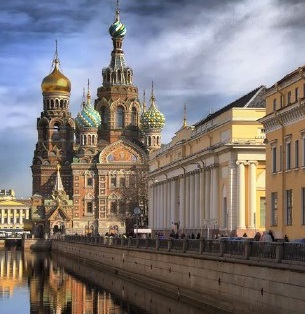
UNWTO General Assembly: See you in St. Petersburg in 2019!
Saint Petersburg in Russia has been selected to be the host of the 23rd session of the UNWTO General Assembly in 2019. The selection was made at the 22nd session, currently being conducted in Chengdu, China.
Widely admired for its majestic architecture, cultural richness and historical significance, Saint Petersburg includes treasures within the art collections of the Hermitage and the Russian Museum, among other notable attractions.
UNWTO Secretary-General Taleb Rifai stated, “Tourism in the Russian Federation is full of potential and to celebrate our next General Assembly in one of the most relevant cities of the entire world, Saint Petersburg, is a great opportunity to spotlight the progress made by the Russian Federation within the tourism sector.”
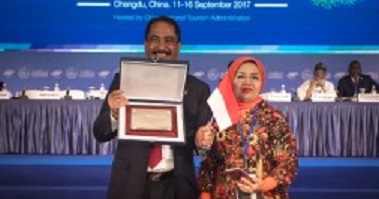
2017 UNWTO Video Competition: And the winners are..
UNWTO unveiled the winners of the 2017 Video Competition at the 22nd General Assembly held in Chengdu, China. Taking the People’s Choice Award was Indonesia.
Regional winners were:
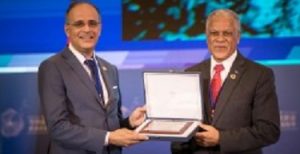
Africa – Tunisia
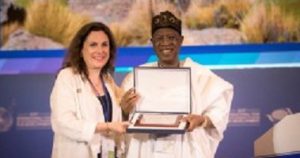
Americas – Chile
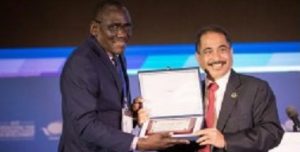
East Asia and the Pacific – Indonesia
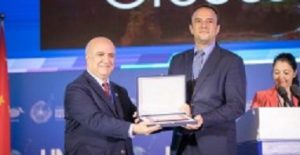
Europe – Greece
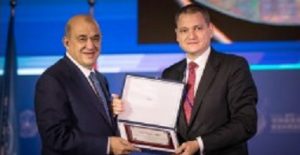
Middle East – Egypt
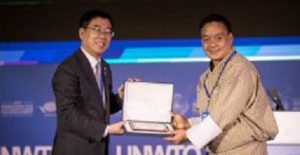
South Asia – Bhutan
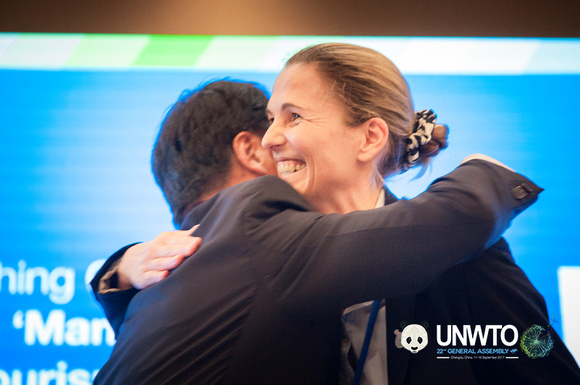
Historic decision:UNWTO Framework Convention on Tourism Ethics approved
The member States of the World Tourism Organization (UNWTO) approved today an historical document – the UNWTO Framework Convention on Tourism Ethics. The Convention, approved at the 22nd UNWTO General Assembly transforms the Code of Ethics for Tourism into an international convention, the first in the life of the Organization.
The Convention covers the responsibilities of all stakeholders in the development sustainable tourism, providing a framework that recommends an ethical and sustainable modus operandi, including the right to tourism, the freedom of movement for tourists and the rights of employees and professionals.
“In an interconnected world where the business volume of tourism equals or even surpasses that of oil exports, food products or automobiles, it is important to set out a legal framework to ensure that growth is dealt with responsibly and that it can be sustained over time. Tourism is a power that must be harnessed for the benefit of all,” said the Chairman of the World Committee on Tourism Ethics (WCTE), Pascal Lamy.
Appointed as Chairman of the WTCE in 2013, Pascal Lamy, together with his colleagues in the Committee, has been instrumental in the process of presenting the Convention on Tourism Ethics to the 22nd UNWTO General Assembly.
The conversion of the Code, which was adopted in 1999, into a proper Convention represents a significant step towards ensuring that tourism development is done with full respect for sustainable development, social issues, local community development, improves understanding between cultures and addresses labour issues.
“This is an historical moment for UNWTO, said the Secretary-General”, Taleb Rifai. “The approval of the Convention is a strong legacy of the International Year of Sustainable Tourism for Development that we celebrate this year. It is also a strong sign that countries are committed to make tourism a force for a better future for all. It reinforces UNWTO institutional outreach in the UN system,” he added.

Smart tourism trends tackled at UNWTO General Assembly
The ‘smart’ concept has reached almost everything around us: phones, watches, cars… and also destinations. Smart tourism has taken center stage at the 22nd session of the World Tourism Organization (UNWTO) General Assembly, currently taking place in Chengdu, China. The GA Special Session on Smart Tourism builds on the 1st UNWTO World Conference on Smart Destinations held in Spain earlier this year.
Transport, accommodation, travel reservations and even knowledge are impacted by the ‘smart tourism’ approach. This comprises a whole philosophy leading to more liveable, accessible and sustainable destinations, not only for visitors but also for locals. This model is of great significance and relevance in 2017, when the International Year of Sustainable Tourism for Development is being celebrated widely.
In a General Assembly special session by CNN International anchor Richard Quest interviewed the CEO of TripAdvisor Steve Kaufer “Smart tourism is not a trend, but is the future of tourism development,” said UNWTO Secretary-General Taleb Rifai. “The International Year of Sustainable Tourism for Development 2017 and the General Assembly together comprise the perfect framework within which to conduct such an event and to join synergies around this theme, as it addresses major challenges and opportunities of the tourism sector in the coming years,” he commented.
New platform tourism services or the so-called sharing economy, big data, destination marketing, accessibility, energy and waste management, and urban mobility were some of the topics addressed at the session in Chengdu.
The session was opened by interventions from Rifai, Chairman of the China National Tourism Administration Li Jinzao, and Sara Mathews, Chairperson of PATA. Participants at the event called for increased participation of all involved parties, including private sector and government, to induce progress in creating smart destinations. Two panels on new technologies and smart tourism.
The conference included the signing ceremony of the International Smart Tourism Center by the Talal Abu-Ghazaleh Organization (TAG-Org) and two panels – on new technologies to enhance tourism sector performance, moderated by Anita Mendiratta, Strategic Advisor to CNN International for T.A.S.K Group, and on smart destinations, led by Antonio López de Ávila, Special Advisor of the UNWTO Secretary General on Tourism and Technology. The first panel provided essential background knowledge about the latest wave of digital technologies and applications and their impact on tourism. Research on new platform tourism services was presented by John Kester, Director of the UNWTO Statistics and Trends Program. The panel included Arief Yahya, Minister of Tourism of Indonesia, Mikael Ahlstöm, CEO and Founder of Britny, Kaye Chon, Dean and Chair Professor of the Hong Kong Polytechnic University, Shaohua Li, CEO of AliTrip, Jason Song, Chairman of Drore Technology and Duncan Horton, CEO of Travel Weekly.
The second panel served to present initiatives to demonstrate the impact of digital applications on enhancing quality of the visitor experience. Mapping applications, virtual reality and the future of the so-called sharing economy in tourism were debated in the panel, which contained: David Scowsill, CEO of EON Reality, Sérgio Guerreiro, Director of Knowledge Management and Corporate Affairs of Turismo de Portugal, Hong Wang, Deputy Mayor of Hangzhou, Changje Yu, Committee Member of Tiantai Town, Carlos Romero, Director of Tourism Research at SEGITTUR and Jeremy Jauncey, Founder and CEO of Beautiful Destinations.

12 months to define the future of the tourism sector
Since the designation in 2015 by the United Nations General Assembly of 2017 as the International Year of Sustainable Tourism for Development (IYSTD), a lot has happened. Governments have supported measures to advance sustainability policies, the private sector has progressively engaged in the cause, and travelers have been called upon to be more aware of their contribution to sustainability through the UNWTO ‘Travel.Enjoy.Respect’ Campaign.
More than 1000 participants attended the launch of the IYSTD early in 2017. FITUR, the International Tourism Fair held annually in Madrid, Spain, hosted the presentation of this major celebration. Months later, more than 650 initiatives celebrating the IYSTD have been shared in the online tourism4development.org platform alongside solutions for sustainable tourism. In the last months, UNWTO has designed 10 Special Ambassadors for the IYSTD who have joined the celebrations promoting the Year around the world, scheduled 14 global events and gathered the support of 61 partners.
“We have come upon a unique opportunity to advance sustainable tourism worldwide; the commitment of all parties – governments, civil society and private sector – is essential to capitalizing on this historic moment and building a more responsible sector in the years to come. The International Year will not end in December 2017,” said UNWTO Secretary-General Taleb Rifai.
One of the points addressed in the event held at the UNWTO General Assembly has been the legacy of the International Year. The awareness reached, the commitment achieved and the engagement attained in the last months were underlined as key assets to capitalize on the IYSTD in future years.

UNWTO launches report on New Platform Tourism Services
Understand, rethink and adapt – a UNWTO Report on New Platform Tourism Services was presented at the UNWTO General Assembly in Chengdu, China. New platform services, or the so-called sharing economy, remain one of the game changers for the tourism sector. The topic was discussed at the UNWTO General Assembly’s special session on smart tourism, where UNWTO presented its latest report ‘New Platform Tourism Services (or the so-called Sharing Economy) – Understand, rethink and adapt’. The report recommends ‘to find creative solutions to safeguard consumer rights and quality standards while ensuring fair competition for all businesses.’
While tourism continues to grow strongly, a shift in business models and consumer behavior has been noticeable over the last years. The combination of the global economic crisis, advances in technology and the emergence of digital platforms has resulted in the rise of new platform tourism services, often referred to as the sharing economy.
The report aims at providing useful insight on the new platform tourism services and at contributing to the ongoing discussion and collaboration around them among stakeholders. The publication looks into new platform tourism services across destinations worldwide in five main areas – information, accommodation, transport, food and ‘things to do’ or tourism activities. The study aims to gain a better understanding of how this phenomenon is shaping the tourism sector, to identify the specific opportunities and challenges it poses, and to assess possible actions moving forward.
Findings and recommendations
The report is based on a survey, among UNWTO Member States, Affiliate Members and a selection of 250 destinations, on the importance and impact of the new tourism services. A total of 114 responses were received from organizations across all world regions and three key conclusions emerged:
- New platform tourism services are important and are expected to continue growing in importance in the coming decade. Of the five areas identified in new platform tourism services (information, accommodation, transport, food and other tourism activities), information and accommodation appear to be the most relevant today, followed by transport services. Food and other tourism activities remain somewhat behind in terms of current importance.
- The positive impact of new platform tourism services outweighs their negative effects according to the participants of the survey.
- Opportunities generated should not distract from the pressing need to address the economic, social or environmental challenges created by the new platform tourism services. Doing so requires a comprehensive approach encompassing four key governance areas: (i) planning and sustainability; (ii) fair competition; (iii) consumer protection; and (iv) labor conditions.
As stated by UNWTO Secretary-General Taleb Rifai in the introduction of the report, “we have identified three main directions in the way forward: understanding and monitoring the new platform tourism services, rethinking regulation and addressing the interests of all stakeholders involved – tourists, workers, providers, platforms, competitors, and local communities – and, finally, adapting to the market challenges based on a ‘4C’ approach – communication, collaboration, cooperation and coordination.”
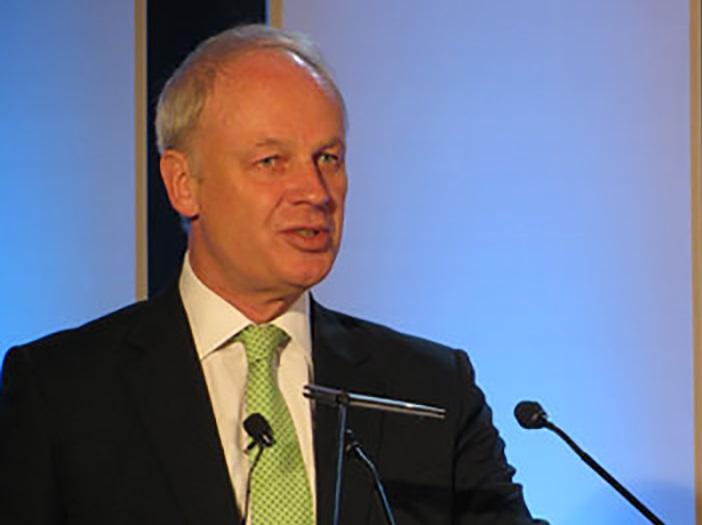
David Scowsill had this to say after being honored at UNWTO General Assembly
David Scowsill was the CEO of the World Travel and Tourism Council (WTTC) for some years. He recently resigned, but attended the ongoing UNWTO General Assembly in Chengdu, China.
He was honored by UNWTO Secretary General Taleb Rifai on Wednesday and had this to say:
“I am deeply honored to accept this accolade on behalf of the team and the members of the World Travel & Tourism Council, delivered here in Chengdu in front of some many ministerial friends.
The partnership between UNWTO and WTTC has been a truly global public/private partnership, where together we have visited 91 heads of state as part of the Global Leaders for Tourism Campaign. The Secretary General and I have always put our arms around the Tourism Ministers, and held very direct conversations with their Presidents and Prime Ministers about the key issues for the industry – visas, taxation, infrastructure, sustainable development and employment. For a diplomatic man, Taleb Rifai talks very directly just like a private sector person to educate these heads of state about the importance of travel and tourism.
UNWTO and WTTC did not always work closely together. Our predecessors sometimes fought publicly about differences on the approach to research. Taleb and I used each other’s numbers, because we understood the power of speaking with One Voice and one set of data. Our teams worked together. As my half-brother, we could read each other’s minds. He would start a sentence and I would finish it. It has been an extraordinary relationship.
I would like to take this opportunity to commend my successor Gloria Guevara Manzo to all the Ministers at the General Assembly. Apart from being a friend, she has the perfect public/private background to take WTTC forward. She has worked in the private sector with Sabre, before becoming Minister of Tourism in Mexico under President Calderon. An academic background with Harvard and various private board appointments have prepared her well to continue the relationship with UNWTO, working with the new Secretary General from 2018 onwards. Gloria this award presented today is for your team at WTTC, who have worked so hard to elevate the profile of WTTC.
My plans are to go ‘back to the future’ into the world of technology, from whence I came. As Chief Executive now of EON Reality Inc., the leading global business for Virtual Reality and Augmented Reality with offices all over the world, I am already talking with a number of ministers at this General Assembly about investing in their countries to create a training academy and software development business. Over the next 10 years, millions of jobs will disappear in this industry due to automation, robotics and artificial intelligence. We want to drive employment in this next wave of technology, to create jobs to combat this trend. The latest iPhone launched yesterday in the US will have an augmented virtual reality app for the first time, which will change the world for consumers and developers alike. If Apple take this seriously, we need to do the same. The opportunities with VR and AR for travel and tourism in your countries are limitless.
I want to commend the Secretary General, Taleb Rifai, for his extraordinary leadership and his tireless work to serve all his members. He has flown across the world constantly, with no regard for his health nor the wear and tear on his body. Behind every great man lies a great woman, and I would like to acknowledge the dedication of his wife Nisrine, who has been such a support to the UNWTO organization. Taleb Rifai has taken the World Tourism Organization to a new level within the UN system, and driven the importance of travel & tourism dramatically higher on the world agenda. He leads a magnificent team of people at the UNWTO, who have contributed to the dramatic success of his two terms of office. It has been an honour to work with you and to learn from you. When you leave your office, there is no doubt that you will have made the world a better place.”
David Scowsill is currently the CEO of EON Reality.

Ministerial tree planting at UNWTO General Assembly
The first day of the General Assembly has served to welcome all delegates coming from more than 130 countries, but also to celebrate the International Year of Sustainable Tourism for Development. One of the events in that framework has been planting trees in the Guixi Park East, in Chengdu.
The Secretary General of the World Tourism Organization was accompanied in the ceremony by ministers participating in the General Assembly who kindly supported this action.


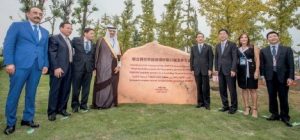
Welcome new UNWTO Members
Somalis and the Union of Comoros are now new full UNWTO members.
The membership application for Palestine is postponed for a decision at the next UNWTO General Assembly in 2018
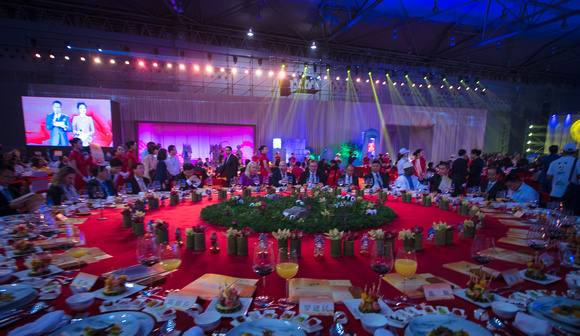
More than 1300 delegates attend 22nd UNWTO General Assembly in Chengdu
More than 1300 delegates from over 130 countries attended the opening of the 22nd session of the World Tourism Organization (UNWTO) General Assembly in Chengdu, China this morning. During the next four days, the priorities of the Organization for 2018-2019, the transformation of the UNWTO Code of Ethics for Tourism into an International Convention and the impact of technology on tourism will centre the discussions. On the agenda of the Assembly is also the election of the Secretary General for the next four years.
“China is an inspiration to others in terms of its supportive tourism policies and in placing tourism at the centre of its poverty alleviation and national development strategies,” said UNWTO Secretary-General Taleb Rifai at the opening of the 22nd session of the General Assembly. “Besides being the fourth most-visited country in the world, with 59 million international arrivals in 2016, China is also the largest domestic tourism market, with 4.4 billion trips made within its borders,” he added.
The Secretary-General also recalled the relevance of having this General Assembly, the last of his mandate, under the framework of the International Year of Sustainable Tourism for Development 2017. “I feel very proud to have contributed to expanding the capacity of travel and tourism to the progress of the SDGs that guide our common action to 2030. This General Assembly is a unique opportunity to continue advancing together,” he said.
Wang Yang, Vice-Premier of the People’s Republic of China, recalled that, since the inclusion of China in UNWTO in 1983, the tourism sector has grown to represent 10% of the country’s economy. Vice-Premier confirmed that “smart tourism” will guide the development of the sector and highlighted the need to enforce policies to enhance sustainable tourism.
The Vice-Premier also mentioned that the inherently sustainable approach to tourism in China resulted from the traditional harmony between man and nature widely present in Chinese culture. In addition, he underlined the relevance of increasing cooperation among countries in the field of tourism, especially in crisis situations such as natural disasters. He further noted that 6 million jobs related to tourism have been created in 2016 in China, particularly for women, people with disabilities and rural communities.
UNWTO is irreplaceable for its role of supporting the multiple dimensions of the tourism sector as well as its wide potential,” he added.
The UNWTO General Assembly will discuss the Chengdu Declaration on ‘Tourism and the Sustainable Development Goals’. The document, in which the potential of the tourism sector is underlined in economic, social and political terms, includes 19 articles that, among others, recommend to governments “to develop an integrated and holistic approach to tourism policy in order to leverage the sector’s positive impact and multiplying effect on people, planet and prosperity (Article 1).” In addition, it proposes “to undertake national assessments on tourism’s contribution and commitment to the SDGs and ensure the inclusion of tourism in interministerial SDG commissions and/or working groups as well as to enhance the contribution of tourism in SDGs national strategies through the set-up of institutional frameworks and mechanisms that allow participation of all stakeholders.”
“To advance, the tourism sector should decouple growth from environmental harm; fight climate change throughout the entire tourism value chain; measure the impacts of travellers every day accurately and regularly, and promote accessibility for all,” stated Rifai. “Furthermore we need to ensure the benefits of the sector reach communities, and prevent negative impacts on their social fabrics by tackling issues such as overcrowding, protect the weak from being exploited in our sector, prevent leakages and address global and tourism-sector security challenges without compromising people’s rights, particularly to freedom of travel and movement,” he added.
